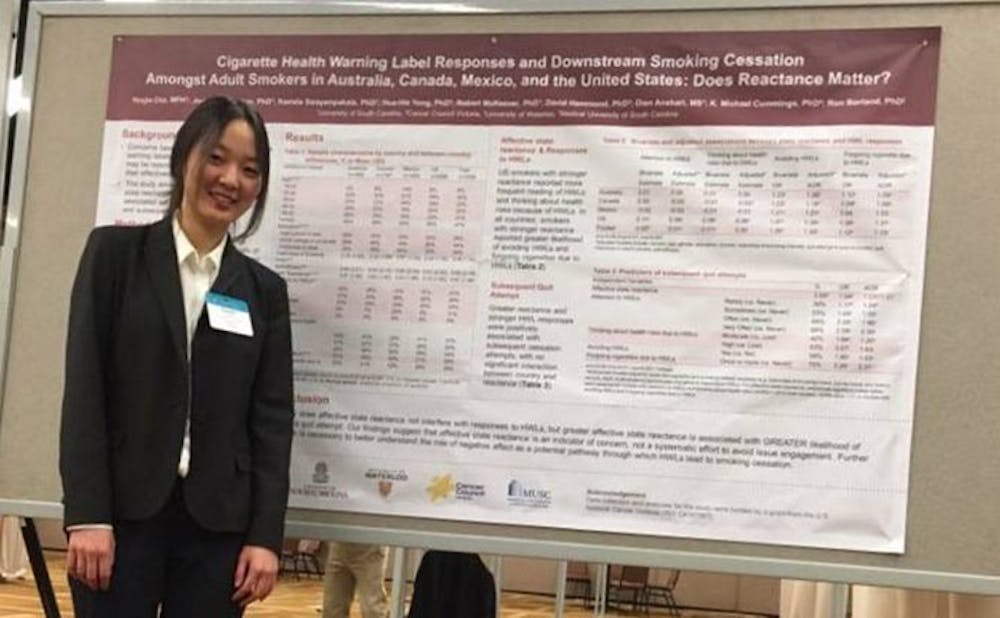Yoojin Cho, a postdoctoral fellow in the Arnold School of Public Health, dreamed of studying in the United States since middle school. However, Cho’s parents didn’t want her studying abroad at such a young age.
As soon as Cho graduated from Ewha Womans University in Seoul, South Korea, she moved to the United States to earn a master's in public health at the University of Texas Health Science Center in Houston, Texas.
Cho came to USC in 2014 to work with professor Jim Thrasher in the Arnold School of Public Health.
“Before I come into Columbia, I just talked with his previous students, and I just — talking with them, I was sure that I would learn a lot from him,” Cho said.
Cho became interested in public health in high school. She said she loved physical education, even becoming captain of a kickball team. But South Korea requires older students to study and prepare for a year before college during the allotted time for P.E.
“I was so mad about that and thinking about how policy can influence people because I couldn’t do anything about the policy, but I had to just follow it," Cho said. "I just wanted to change people’s thinking about prioritizing work over their health, even students’ health.”
When Cho was a freshman in college, she visited California to look at research centers.

"Before then, I didn't think about doing a research, but seeing researchers made me think that research is a fun thing," Cho said. "Before, I [thought] it was a boring job, but ... there is always a new thing to learn. So, it never got that boring."
Cho said in a written statement she decided to join Thrasher’s research team because his research with cigarette packaging warning labels “aligned with [her] interest in the impact of socio-cultural environments on health behavior.”
“I found it meaningful to better understand how cigarette package warning labels work, because it can influence warning label design, which ultimately can promote people to quit,” Cho said in the written statement.
Cho has since started researching warning labels for e-cigarettes, too. She said in the written statement that she also wants to study communication strategies for warning labels for processed foods and sugar-sweetened beverages.
Thrasher said he was immediately impressed with Cho when she joined his research team on cigarette packaging warning labels.
“My first impression was that she was able to jump right in and take on challenging tasks and work independently with some direction but, increasingly, all on her own to do the analyses of the data that we have and to increasingly write scientific manuscripts that we publish in high impact journals,” Thrasher said.
Thrasher also recognizes her strength as a team member. He said she has gradually become in charge of giving feedback to other graduate students to "become stronger scientists."
Hoa Nguyen, a 2019 Ph.D. graduate in health promotion, education and behavior, is one of Cho’s friends from the doctoral program. Nguyen said she admires Cho’s determination to achieve her goals in her research.
“She know what she's aiming for. She has the goal, and she work for it," Nguyen said. "She’s very serious with her work ... that makes [her] really stand out in the work that she has been doing.”

